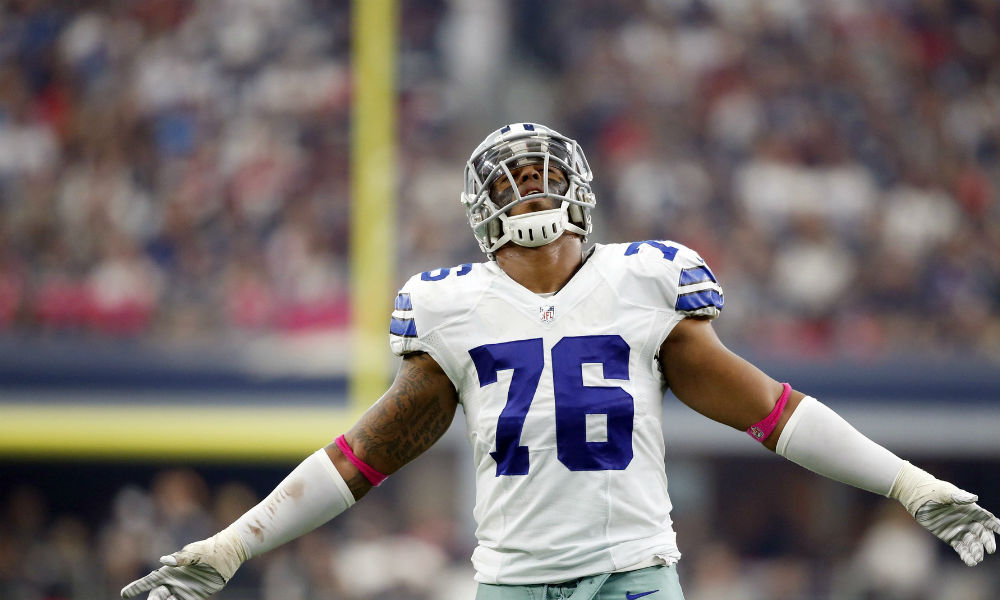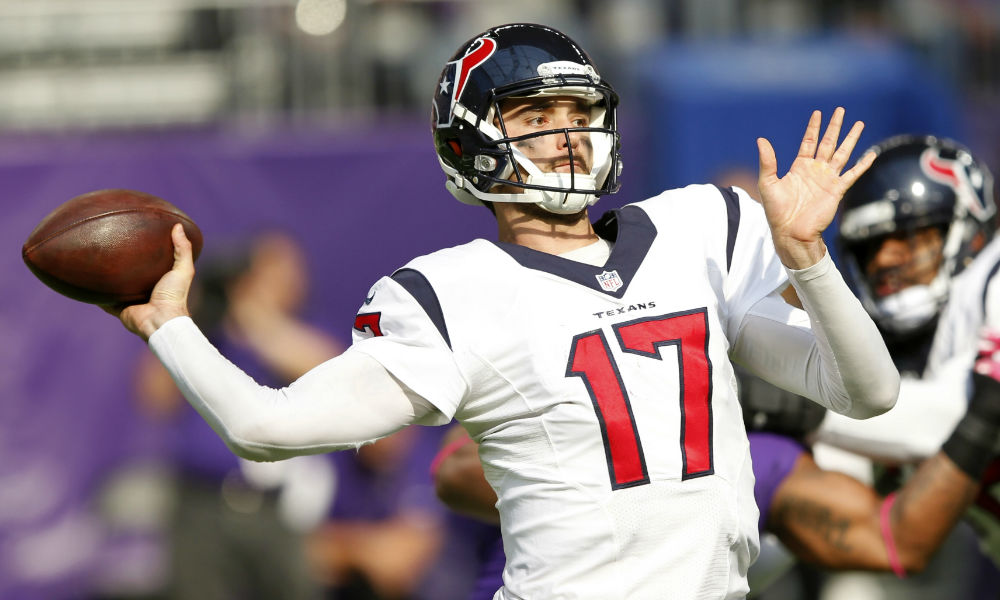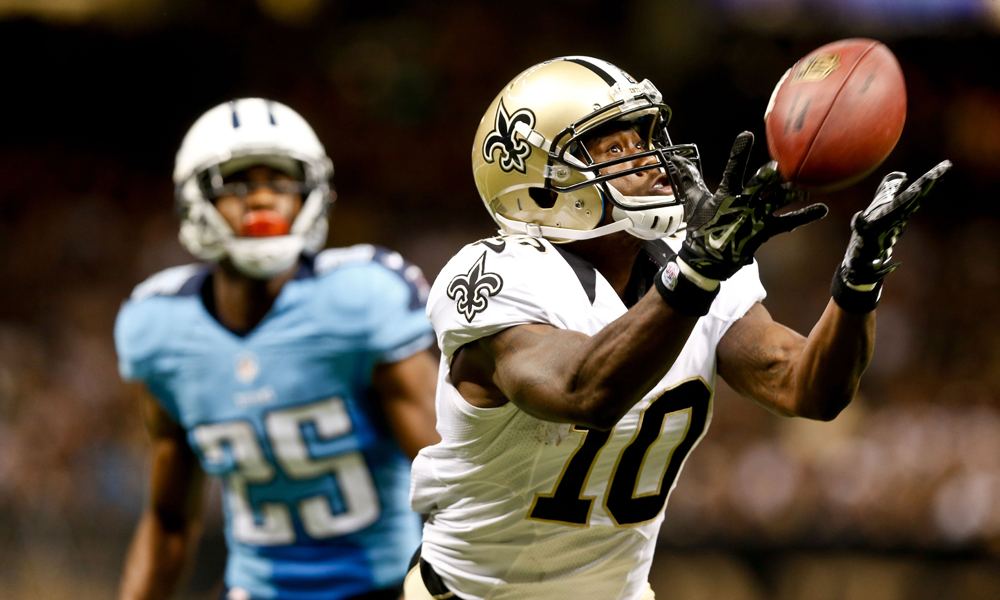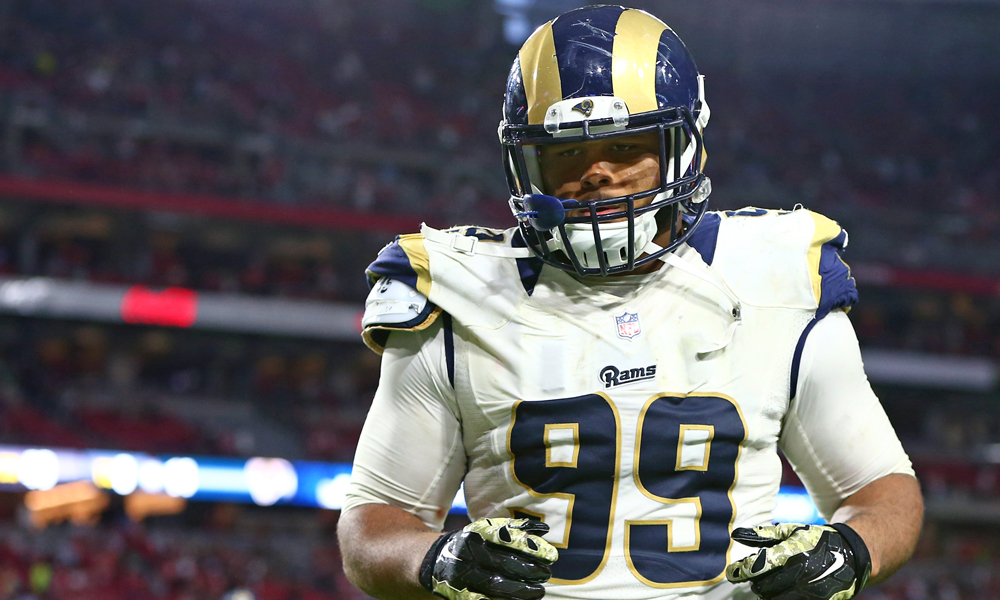News
No, the NFL Is Not Dying Because of Chris Borland’s Retirement
Chris Borland’s retirement was noteworthy, but this is not the end.
The NFL isn’t going anywhere.
The retirement of 24-year-old San Francisco 49ers linebacker Chris Borland sent shockwaves through the football community. Not only was Borland set to be a starter in 2015, but his limited play in 2014 had been revelatory for the third-round pick. One moment, he’s darn near the defensive rookie of the year, and in the next, he’s hanging up his cleats.
How? Why?
The reason Borland retired has been almost as important as that he did it. Concerns about the safety of the game and his long-term health led Borland to think long and hard about whether or not the rewards of playing as an NFL linebacker were truly worth the risks.
He decided they weren’t.
Great for Chris Borland.
That’s not sarcasm. I truly mean it. The safety of football has been a concern of mine as long as I’ve been writing about the game. I’ve worked with the best concussion specialists in the country to figure out what exactly the risks are—men and women from John’s Hopkins, Harvard, Yale, Penn State and more as they’ve done studies to figure out just how bad the long-term effects may be. I’ve sat with widows of NFL greats, and with the greats themselves…or, at least, husks where the greats used to be. I’ve heard teary tales of suicide, dementia and depression. I’ve seen the titans of this game laid low by the very risks Borland is walking away from.
Good for him.
This doesn’t mean the NFL is going anywhere.
Please understand that this argument is not about Chris Borland, nor is it a he-man appeal to the meatheads out there that think the safety of the game does not matter. No, rather, it’s just a reminder of the simple fact that not every event needs to have the kind of wider implications our knee-jerk/hot take society finds need to assign to everything.
Baltimore Ravens lineman John Urschel, a brilliant young player who also happens to have a Master’s degree in mathematics and actually taught classes while at Penn State wrote much the same for “The Player’s Tribune,” in a piece called: Why I Still Play Football:”
What my mother and a great majority of my friends, family, and fellow mathematicians don’t understand is that I’m not playing for the money. I’m not playing for some social status associated with being an elite athlete. No, the media has not brainwashed me into thinking this is what real men do.
I play because I love the game. I love hitting people.
John Urschel is not alone…
For years, the NFL purposefully and blatantly hid everything they knew about the long-term effects of concussions. The less-informed might say “How could they not know the risks?” but in reality, brain-health experts still don’t know just how bad and extensive those risks truly are, and when the NFL spent years obfuscating and misleading players, it’s pretty easy to see why there might have been confusion.
It’s like looking back and saying: “How could people not have known smoking cigarettes is bad for you?” but forgetting that the tobacco industry used to promote their product’s “health benefits” and paid off doctors to do the same.
Yes, I just compared the NFL to the tobacco industry.
No, it’s not that far of a leap.
Twenty years ago, Borland’s retirement doesn’t happen. Without men like Dave Duerson, Ray Easterling and Mike Webster (the latter being another former Wisconsin player), and the horror of what they had to go through, Borland doesn’t think twice about how the game might affect him. Without the information we now have on chronic traumatic encephalopathy (CTE) and its connection to concussions, Borland just keeps playing without a care in the world.
How can there not be more on their way?
It’s simple.
For every Chris Borland, there’s a dozen John Urschels. There’s also a dozen Chris Contes, who admitted that he’d rather “die 10 to 15 years earlier” than not play in the NFL. There even more like the former NFL players Deadspin talked to on whether or not they’d do it all again. Of the 14 retired players they talked to, the responses seemed identical to the dozens of former players I’ve talked to on the subject—a wide range between regret and wistful admission that they did what they loved and what they were good at.
It’s difficult to truly understand this issue until you’ve sat, as I have, with a a former Super Bowl champion and running back who will remain nameless and have him tell you he has no regrets, twice—twice not just because he means it, but because you’ve just had the same conversation twice in a row. He apologizes, says it happens more and more these days, and then goes on to tell you that he still has no regrets.
This is not, in any way, to make light of or excuse these health issues. They are very serious and should be concerning to every NFL fan. What this is, though, is a spotlight on the personal decisions these players make. Borland made his, and countless others make theirs. Some might be similar to Borland’s, others will be vastly and drastically different.
The game needs to be safer.
Note, please, that the game will never be safe. It is inherently dangerous and always will be. That doesn’t mean it can’t be safer today than it was yesterday and safer tomorrow than it is today, and it certainly doesn’t mean that the NFL shouldn’t try. Helmets will never stop concussions, but technology can improve. Collisions will never stop being part of the game, but rules can limit the intensity. Identification and treatment of concussions and further brain issues can always get incrementally better even if there’s no hope for any sort of ideal.
Let’s just not conflate the need for the game to be safer with a pearl-clutching frenzy over the game’s impending doom.
For all the people that have tried to paint Chris Borland as some sort of harbinger of the NFL’s upcoming existential crisis, there are just as many players before Borland that have made ultimately the same decision—that the risks of the game (health, concussion or otherwise) didn’t match up with their own potential rewards. Borland is unique because he was so young and so promising, but he is hardly the first (or the hundreth, even) to make that decision.
In many ways, the reaction to Borland’s retirement has been a masterclass in the difference between deductive and inductive reasoning. The former takes general precepts and works them down into specific situations. The latter, which is happening here, looks at a single event or example and extrapolates wider meaning. The thing with inductive reasoning, though, is that one must admit that the conclusions are potentially false.
Take a step back from Borland’s retirement and what it might mean and look at the tremendous amount of evidence already in place. There’s simply not room to take this one data point and pretend it means something more than it does when that conclusion flies in the face of so much more evidence.
So, what does Chris Borland’s retirement mean?
It means that Borland decided, for himself, that the risks involved with the game were too great to continue playing. That’s all it means. That’s all the meaning we can assign to it. Anything more is trying to predict a future that may or may not come. Anything more out there ignores and lessens voices like Urschel’s or Conte’s which are just as relevant and just as important to the discussion. Anything more cheapens the daily choices made by current and former players who have all of the evidence and concerns Borland had and come up with different outcomes.
Here’s what I hope Borland’s retirement means.
I hope more and more football players—at every age and every skill level—take a step back from their daily routines, assess the risks involved with the game and decide whether or not they want to continue playing. I hope more and more players think about Borland before they try to fight to get back into the game sooner than they ought following a concussion. I hope coaches and trainers stop promoting a culture where playing through concussions is considered macho rather than stupid, and I hope all of these things happen just as equally for youth, high school and college football as they do in the pros.
Borland’s retirement was an important moment for football—a moment to be respected and a moment to give us pause.
It was not the beginning of any end.
News
Buccaneers admit mistake, boot Aguayo
Source: Mike Florio of ProFootballTalk
Powered by WPeMatico
News
Did Bucs put too much pressure on Aguayo?
Source: Mike Florio of ProFootballTalk
Powered by WPeMatico
News
Broncos holding their breath on Derek Wolfe
Source: Mike Florio of ProFootballTalk
Powered by WPeMatico





